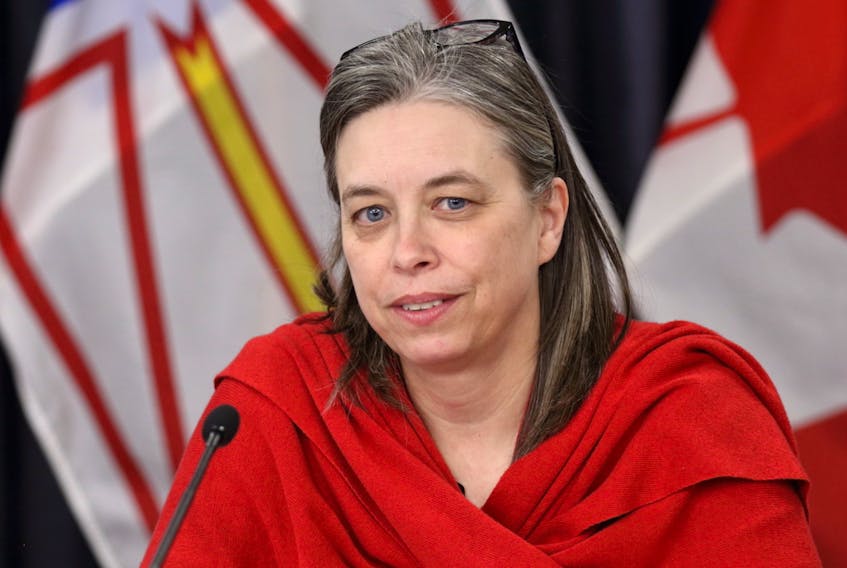ST. JOHN'S, N.L. — With the passing of a full COVID-19 incubation period since New Year’s Eve, Newfoundland and Labrador’s chief medical officer of health said Wednesday she is humbled by the fact most of the population appeared to closely follow pandemic precautions over the holidays.
“The past month was a period of great risk,” Dr. Janice Fitzgerald said during the regular video briefing. “You all stepped up your efforts and it is paying off.”
Fitzgerald offered particular gratitude to those who could have travelled to the province under existing exemptions, but chose not to.
“We have had many individuals write to us to say that they have decided not to travel because of the risk of COVID,” she said. “I know for each of them that this was a difficult decision, but also a very selfless one. Each sacrifice has played a role in our success.”
Premier Andrew Furey and Health Minister Dr. John Haggie were also in a congratulatory mood.
Both said they are happy with the way vaccines are being distributed and administered.
“COVID-19 vaccinations are rolling out smoothly across Newfoundland and Labrador,” Furey said in his opening remarks.
The province will also get more Pfizer vaccine doses than expected, as Canada has been allotted 20 million more doses over the span of the year.
Haggie said that should amount to 280,000 extra doses in this province, which translates to double doses for one-third of the eligible population.

Priority plans
Officials are still vague about how vaccine priorities will be decided once the first phase of vaccinations is finished. That stage is expected to last until the end of March.
The focus so far has been on high-risk health-care workers, but the central and western health regions have already started vaccinating seniors and staff in long-term care. Eastern Health expects to start on long-term care home residents Thursday.
“With the limited amount of vaccine currently available to us right now, we must ensure this precious resource is allocated in the most effective way,” Fitzgerald said. “So we must continue to focus on those who are at most risk of severe complications from COVID-19, and those who are key for maintaining the integrity of our health-care system.”
Within guidelines, specific decisions on who gets the vaccine first falls to regional authorities, Fitzgerald said.
She said priorities will depend largely on how much vaccine the province gets after March.
“We know now that age is our biggest risk factor for severe disease and severe outcomes from COVID-19, so we will be steadily working through the older age groups to make sure we get those people vaccinated,” she said.
After that, if supplies remain limited, a clearly defined list of priorities will be made public.
The premier added that no one will be left in the dark.
“All of that will be done in a very open and transparent way so that people will have a full understanding of where they are in the line,” Furey said.
“Once the decisions are made, everyone will be aware.”
Peter Jackson is a Local Journalism Initiative reporter covering health for The Telegram.









